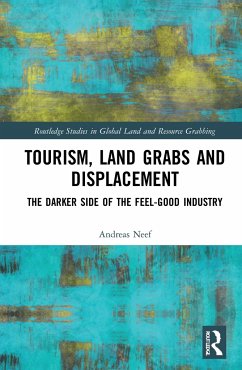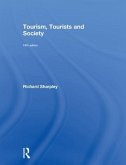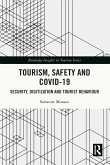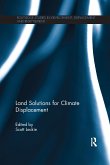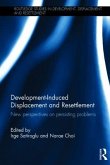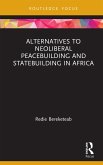This book examines the global scope of tourism-related grabbing of land and other natural resources. Tourism is often presented as a peaceful and benevolent sector that brings people from different cultural backgrounds together and contributes to employment, poverty alleviation, and global sustainable development. This book sheds light on the lesser known and much darker side of tourism as it unfolds in the Global South. While there is no doubt that tourism has been an engine of economic growth for many so-called developing countries, this has often come at the cost of widespread dispossession and displacement of Indigenous and non-indigenous communities. In many countries of the Global South, tourism development is increasingly prioritised by governments, businesses, international financial institutions and donors over the legitimate land and resource rights of local people. This book examines the actors, drivers, mechanisms, discourses and impacts of tourism-related land grabbing and displacement, drawing on more than thirty case studies from Latin America and the Caribbean, sub-Saharan Africa, South and Southeast Asia, the Middle East and the Southwest Pacific. The book provides solid grounds for an informed debate on how different actors are responsible for the adverse impacts of tourism on land rights infringements, what forms of resistance have been deployed against tourism-related land grabs and displacement, and how those who have violated local land and resource rights can be held accountable. Tourism, Land Grabs and Displacement will be essential reading for students and scholars of land and resource grabbing, tourism studies, development studies and sustainable development more broadly, as well as policymakers and practitioners working in those fields.
Hinweis: Dieser Artikel kann nur an eine deutsche Lieferadresse ausgeliefert werden.
Hinweis: Dieser Artikel kann nur an eine deutsche Lieferadresse ausgeliefert werden.
"For too long tourism has been touted as a panacea, an industry which has overwhelming benefits for development of destinations. This book is ground-breaking in its efforts to expose the serious issue of land-grabbing in tourism locales, and its impacts on the more vulnerable in society. An impressive 31 case studies from around the world are provided. Professor Neef has laid out a clear argument for why this must be challenged - whether the land grabbing is at the hands of conservation agencies, governments, or multinational hotel chains - while also constructively demonstrating what instruments can be used to protect communities from future displacement. The book is a must-read for anyone committed to just, sustainable development of tourism destinations." - Regina Scheyvens, Professor in Development Studies, School of People, Environment and Planning, Massey University, New Zealand
"This monograph is a highly important addition to tourism studies. At a time of surging debates about social justice, 'Tourism, Land Grabs and Displacement' exposes simplistic views of tourism's development potential. It fills an important gap in our understanding of what tourism 'does' on the ground, and asks for accountability of nation states and corporations. With case studies from all over the world, this carefully researched volume should be obligatory reading for anyone working in tourism." - Stefan Gössling, Professor of Tourism Research, School of Business and Economics, Linnaeus University, Sweden
"This book provides a powerful and timely analysis of more than 30 case studies that show how the global tourism industry and its host governments are driving land grabbing and displacement with devastating impacts on communities in the Global South. Andreas Neef provides intriguing and critical insight into the actors, discourses, mechanisms and practices behind tourism-related land grabs and discusses resistance movements and potential remedies. In these uncertain times of a global tourism crisis - with potential for substantial restructuring of the industry - this book presents a key resource for academics, students, practitioners and policy-makers in the field of tourism and development." - Susanne Becken, Professor of Sustainable Tourism, Griffith University, Australia
"Tourism is often portrayed by its boosters as a hugely beneficial and smokeless industry that contributes to economic and environmental wellbeing. This book provides another line of critique to the unthinking promotion of tourism by highlighting the impacts of tourism-related land and resource grabbing. In doing so it exposes the way in which tourism, even when promoted as supposedly being sustainable, can displace communities, destroy livelihoods and enclose space. The book is therefore a welcome addition to the literature that critically assesses tourism and should be read by scholars, students and policy-makers alike." - C. Michael Hall, Professor in Marketing and Tourism, University of Canterbury, New Zealand
"As the first major book on tourism and land grabbing, and containing fascinating cases from around the world, this thought-provoking book draws much needed attention to a major issue of international concern. Providing valuable new insights into why tourism should be considered an extractive industry, this book is of high importance for students and researchers seeking to understand the 'darker' side of contemporary tourism" - Hazel Tucker, Department of Tourism, Te Kura Pakihi - Otago Business School, University of Otago
"Finally, a book that explores the land grab debate and tourism development. From all-inclusive resort tourism to wildlife tourism, Neef exposes the reality for local land owners and communities using case studies spanning the 'Global South'. A must read for anyone interested in developing a truly sustainable and responsible tourism industry." - Julia Jeyacheya, Senior Lecturer in International Development, Future Economies University Research Centre, Faculty of Business & Law, Manchester Metropolitan University, UK
"This monograph is a highly important addition to tourism studies. At a time of surging debates about social justice, 'Tourism, Land Grabs and Displacement' exposes simplistic views of tourism's development potential. It fills an important gap in our understanding of what tourism 'does' on the ground, and asks for accountability of nation states and corporations. With case studies from all over the world, this carefully researched volume should be obligatory reading for anyone working in tourism." - Stefan Gössling, Professor of Tourism Research, School of Business and Economics, Linnaeus University, Sweden
"This book provides a powerful and timely analysis of more than 30 case studies that show how the global tourism industry and its host governments are driving land grabbing and displacement with devastating impacts on communities in the Global South. Andreas Neef provides intriguing and critical insight into the actors, discourses, mechanisms and practices behind tourism-related land grabs and discusses resistance movements and potential remedies. In these uncertain times of a global tourism crisis - with potential for substantial restructuring of the industry - this book presents a key resource for academics, students, practitioners and policy-makers in the field of tourism and development." - Susanne Becken, Professor of Sustainable Tourism, Griffith University, Australia
"Tourism is often portrayed by its boosters as a hugely beneficial and smokeless industry that contributes to economic and environmental wellbeing. This book provides another line of critique to the unthinking promotion of tourism by highlighting the impacts of tourism-related land and resource grabbing. In doing so it exposes the way in which tourism, even when promoted as supposedly being sustainable, can displace communities, destroy livelihoods and enclose space. The book is therefore a welcome addition to the literature that critically assesses tourism and should be read by scholars, students and policy-makers alike." - C. Michael Hall, Professor in Marketing and Tourism, University of Canterbury, New Zealand
"As the first major book on tourism and land grabbing, and containing fascinating cases from around the world, this thought-provoking book draws much needed attention to a major issue of international concern. Providing valuable new insights into why tourism should be considered an extractive industry, this book is of high importance for students and researchers seeking to understand the 'darker' side of contemporary tourism" - Hazel Tucker, Department of Tourism, Te Kura Pakihi - Otago Business School, University of Otago
"Finally, a book that explores the land grab debate and tourism development. From all-inclusive resort tourism to wildlife tourism, Neef exposes the reality for local land owners and communities using case studies spanning the 'Global South'. A must read for anyone interested in developing a truly sustainable and responsible tourism industry." - Julia Jeyacheya, Senior Lecturer in International Development, Future Economies University Research Centre, Faculty of Business & Law, Manchester Metropolitan University, UK

